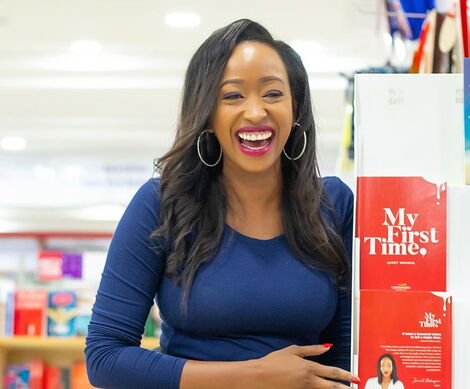Celebrated media personality Janet Mbugua has attracted international attention with her series of virtual ‘Period Parties’ meant to demystify menstrual health for women and girls in Africa.
Actively involved in her Inua Dada initiative which undertakes various programs targeting girls and women, Mbugua began hosting the parties on various platforms including Instagram live during the Covid-19 pandemic.
The parties involve women from different countries, religions and social backgrounds to discuss their experiences with menstruation, taboos associated with it and the need to ensure accessibility to sanitary health products for women and girls.
With the parties gaining traction on social media, Mbugua was featured on BBC on Saturday, June 6 where she discussed the initiative and her plans for it.
"When you’re buying pads, don’t hide them. Everyone knows periods are something."@OfficialJMbugua campaigns against period poverty, and holds 'period parties' for women to have honest & open discussions about periods. We joined one of them.
📹: @EstherAkello @GloriaAchieng5 pic.twitter.com/OkPZAE8sOl
— BBC News Africa (@BBCAfrica) June 6, 2020
Other women also appeared to discuss menstruation, with the parties earning plaudits for making important conversations about menstrual health fun.
Mbugua explained that the parties were part of a larger commitment to shifting the conversation on issues of access to sanitary products.
Period poverty refers to the inability to work or attend schools due to lack of funds to purchase sanitary products, something experienced by many Kenyan girls and women.
“Periods are normal, period poverty disrupts families and period poverty is something that is a human rights injustice, a human rights violation that needs to be addressed as such,” she asserted.
Mbugua previously revealed that she drew inspiration to work with girls and women when, during her time as a broadcast journalist, a story aired on the pain of girls lacking sanitary products.
“Inua Dada is coming in because we already had some essentials that were supposed to go into activations with what we were doing; school visits and community visits giving girls and women who don’t have access, access to these dignity kits.
“So I thought because we have these products, why don’t we give them to girls, women and families who need them right now?
“Girls who are not in school don’t have access to sanitary pads when they would have access to those products in a school setting. Women who are working every day on a daily wage and using some of that money to buy menstrual products don’t have access to that now because they’ve been sent home.
“Men as well, in this setting, also don’t have access to some food,” she noted at the time.
Credit: Source link
